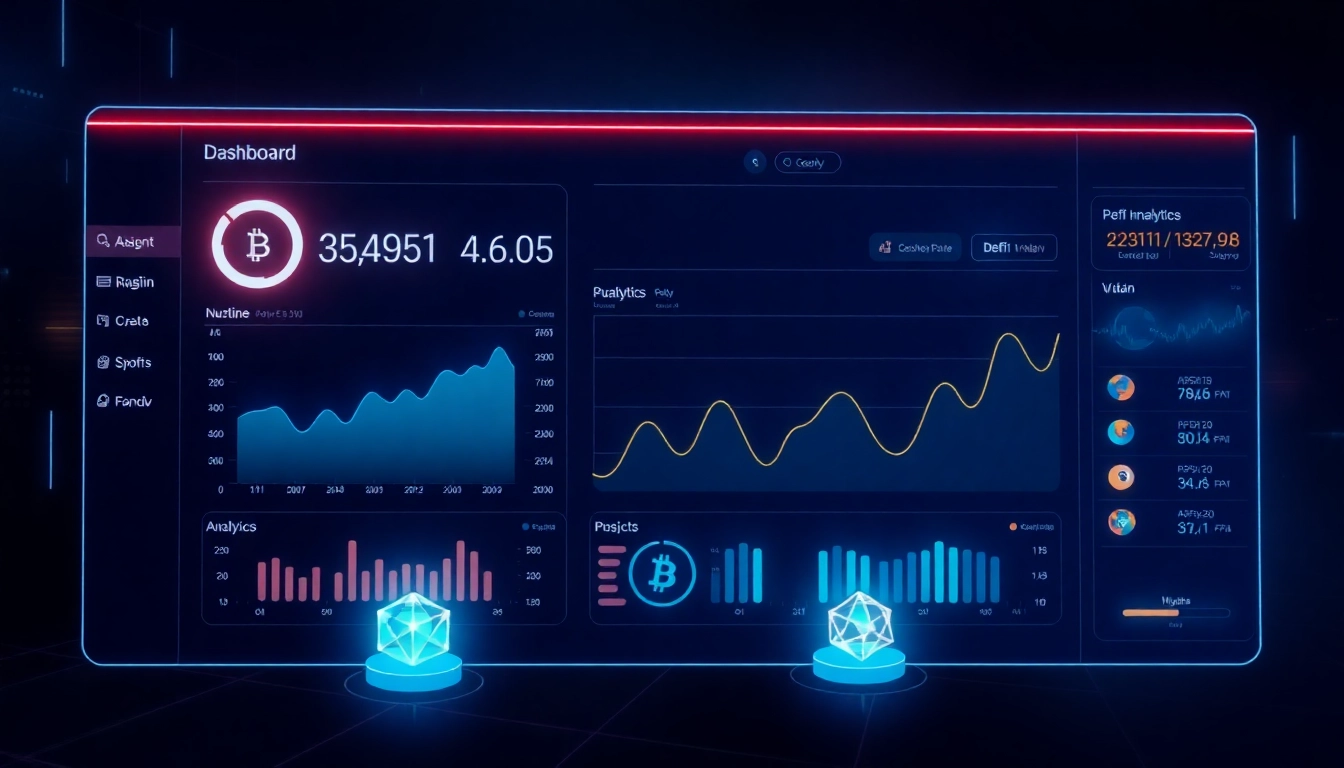Understanding the Significance of Recent Developments in DeFi: Gemini’s MiCA License, Federal Policy Insights, and CFTC Initiatives
The decentralized finance (DeFi) ecosystem continues to evolve at a rapid pace, driven by regulatory advancements, institutional adoption, and innovative technology developments. As the industry matures, key milestones such as Gemini obtaining its MiCA license, insights from U.S. Federal Reserve officials, and the Commodity Futures Trading Commission’s (CFTC) renewed focus on crypto compliance are shaping the future landscape. This comprehensive analysis explores these pivotal developments, their impact on DeFi updates, and the broader implications for investors and industry participants.
Understanding the Significance of Gemini’s MiCA License in the Context of DeFi updates
What the MiCA License Means for Gemini and Crypto Regulations
The recent approval of Gemini’s license under the European Union’s Markets in Crypto-Assets (MiCA) regulation marks a significant milestone for the firm. MiCA aims to create a harmonized regulatory framework across EU member states, providing legal clarity and operational legitimacy for crypto platforms. For Gemini, this license not only facilitates broader access to European markets but also sets a precedent for compliance-driven growth in the DeFi space, emphasizing transparency, consumer protection, and anti-money laundering (AML) protocols.
From a regulatory standpoint, Gemini’s licensure can be viewed as a strategic move to align with evolving global standards, signaling to investors and partners that its offerings meet stringent compliance requirements. Such steps contribute to fostering user trust—a vital component in DeFi adoption amidst increasing regulatory scrutiny.
Implications for DeFi Protocols and User Trust
Securing a MiCA license enhances user confidence by ensuring that Gemini adheres to high operational standards, which is crucial as DeFi platforms seek mainstream acceptance. It encourages other DeFi projects to pursue similar licenses to bolster legitimacy and safety, ultimately promoting a safer ecosystem for users.
This development also paves the way for more regulated DeFi protocols that can operate seamlessly across borders, fostering innovation while maintaining regulatory compliance. For users, it signifies a move toward more trustworthy DeFi services, reducing risks associated with scams, hacks, or unregulated activities.
Comparative Analysis: Global Regulatory Landscape and DeFi Growth
Globally, jurisdictions are adopting varied approaches to regulate crypto assets and DeFi activities. The EU’s MiCA framework exemplifies a balanced approach—combining regulation with innovation—a model other regions are likely to emulate. Meanwhile, countries like the U.S. are implementing sector-specific guidelines through agencies such as the CFTC and SEC.
Developments like Gemini’s MiCA licensure signal a transition from a primarily unregulated environment to one where regulation complements technological innovation. This shift is crucial for DeFi growth, as clear legal frameworks attract institutional investors, foster compliance, and reduce market volatility caused by regulatory uncertainties.
Insights from Fed Officials on DeFi and Decentralized Finance Innovation
Fed Governor’s Vision for DeFi Adoption and Caution
Federal Reserve officials have expressed both cautious optimism and pragmatic concern regarding DeFi’s potential. A prominent Fed governor recently emphasized that DeFi could revolutionize financial services by increasing efficiency and reducing costs, but warned about risks such as fraud, liquidity crises, and regulatory gaps.
Their insights suggest a recognition that DeFi can coexist with traditional finance if proper safeguards and oversight are implemented. The challenge lies in balancing innovation with consumer protection, which is vital for sustainable growth.
Potential Policy Changes and Impact on DeFi Projects
Policy discussions are increasingly centered on establishing clear standards for DeFi platforms. Potential regulations include licensing requirements, operational transparency, and enhanced AML/KYC protocols. Such policies aim to mitigate systemic risks and ensure fair market practices.
For DeFi projects, impending policy changes may impose compliance costs but could also improve scalability and investor confidence. In particular, projects that proactively adapt to evolving regulations are better positioned for long-term success and integration into mainstream financial markets.
Bridging Traditional Finance and DeFi: Opportunities and Challenges
The intersection of traditional finance and DeFi presents a wealth of opportunities—tokenization of assets, decentralized lending, and cross-border settlements—yet also introduces challenges such as regulatory disparities and technological interoperability.
Establishing collaborative frameworks between regulators and DeFi innovators is essential to harness these opportunities while safeguarding market integrity. A strategic approach involves transparency, stakeholder engagement, and pilot programs to test regulatory models before full implementation.
Latest Developments: CFTC’s Second Crypto Sprint and Industry Trends
CFTC’s Initiatives for Enhancing DeFi Security and Market Integrity
The CFTC’s second “Crypto Sprint” underscores its commitment to fostering a secure and compliant DeFi environment. The initiative focuses on developing innovative solutions for smart contract auditing, market surveillance, and trade transparency.
By convening industry leaders, technologists, and regulators, the CFTC aims to address vulnerabilities such as hacks and exploits that threaten market integrity. These efforts are crucial given recent incidents involving DeFi protocols that suffered significant security breaches.
Innovations and Collaborations During the Crypto Sprint
Notable outcomes from the sprint include the development of open-source tools for real-time risk monitoring and frameworks for standardizing security audits. Collaborations with leading DeFi projects and cybersecurity firms enhance these efforts, forging pathways for the broader adoption of best practices.
Furthermore, the sprint promotes interoperability standards that simplify compliance and facilitate cross-platform liquidity sharing, fostering a resilient DeFi ecosystem that aligns with regulatory expectations.
Future Outlook for Regulatory Support in DeFi Growth
Regulatory support remains a critical catalyst for DeFi expansion. The CFTC’s proactive stance signals an evolving regulatory environment conducive to innovation, provided projects prioritize security and transparency. The industry can anticipate more initiatives aimed at education, community engagement, and pilot regulatory frameworks to gradually integrate DeFi into mainstream finance.
Analysing the Current State of DeFi updates: Key News and Insights
Major Recent DeFi Protocol Updates and Hacks
Recent data indicates that total value locked (TVL) in DeFi protocols continues to grow, reaching new highs in sectors like decentralized lending and yield farming. However, along with this growth, the industry has faced notable hacks, such as exploits on cross-chain bridges, which expose vulnerabilities in smart contract security.
Case studies like the Wormhole bridge hack, where attackers drained $320 million, exemplify the importance of rigorous security audits and insurance protocols. These incidents serve as a warning and a call for ongoing risk mitigation strategies.
Emerging Trends in DeFi Investments and Usage Metrics
DeFi’s user base has surged, with increased institutional participation and retail engagement. Innovative financial products, such as algorithmic stablecoins and NFT-based DeFi assets, are gaining traction. Data-driven insights reveal a shift toward more sustainable and scalable DeFi platforms that prioritize compliance, interoperability, and user experience.
Upcoming Projects and Market Sentiment in DeFi ecosystem
The pipeline of upcoming DeFi projects suggests a focus on cross-chain solutions and enhanced privacy features. Community sentiment remains cautiously optimistic, emphasizing security upgrades and regulatory clarity as key drivers for sustained growth. Industry rankings highlight emerging platforms like DappRadar’s upcoming DeFi launches, indicating a vibrant innovation landscape.
How to Stay Informed: Resources and Best Practices for Monitoring DeFi updates
Top News Platforms and Databases for DeFi developments
Reliable platforms such as CoinTelegraph, Blockworks, and CoinDesk provide timely DeFi news, analysis, and insights. For deep dives, resources like De.Fi’s blog offer detailed research on protocol developments and industry trends. Subscribing to newsletters and following social media channels like De.Fi on X help maintain real-time awareness.
Community Engagement and Expert Insights
Active participation in industry forums, Discord servers, and DeFi conferences fosters a deeper understanding of ongoing developments. Engaging with thought leaders enables investors and developers to navigate complex regulatory landscapes and technological advancements more effectively.
Building a Personal Strategy for DeFi awareness and risk management
Practicing due diligence, diversifying investments, and employing risk mitigation tools—such as smart contract audits and insurance—are essential for sustainable participation. Staying updated on regulatory changes ensures compliance and safeguards against unforeseen disruptions.



